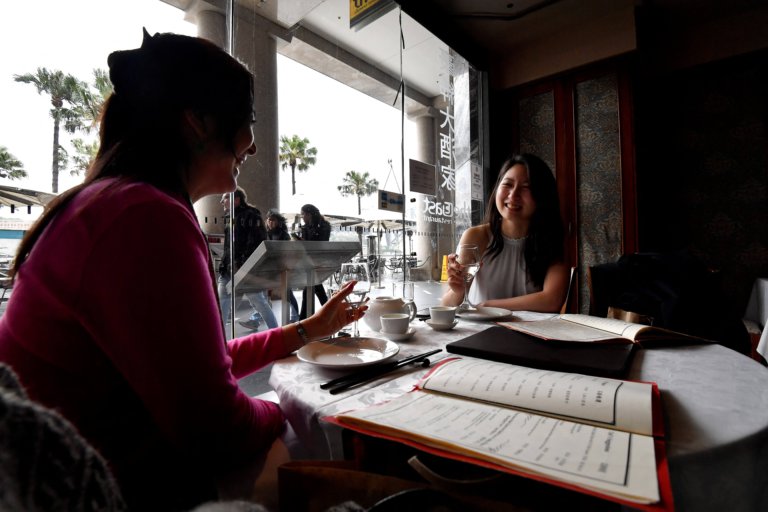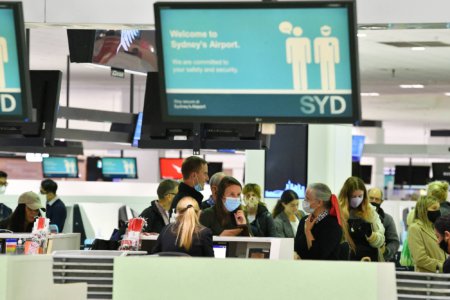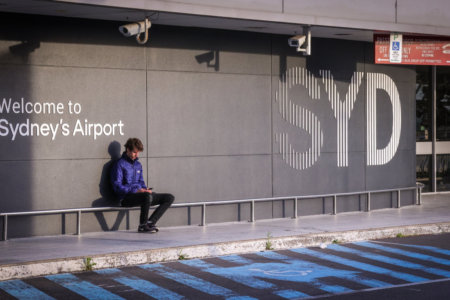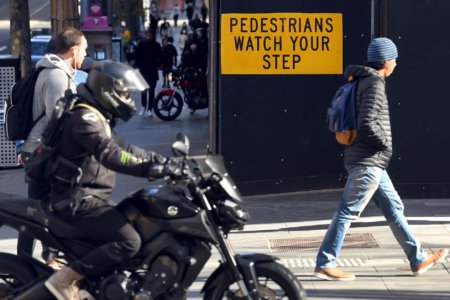
Australians based in NSW could be on a fast track to return to the country as early as the end of this month, announced Federal Health Minister Greg Hunt on Oct. 11, 2021. The move would scrap the caps for NSW residents trying to return home.
“The reason we’re so keen is not just to ensure people can travel overseas and reunite with their family and friends and loved ones but also to ensure people are able to come back,” Hunt told Radio National, as reported by Courier Mail.
The announcement follows discussions between the federal and state government about moving away from hotel quarantine to home quarantine for vaccinated travellers.
“I know the NSW government is looking at ways to fast-track home quarantine in November, and if that happens we will be able to move to facilitate the opening up of the international border into NSW sooner,” Prime Minister Scott Morrison said on Sunday.
“Now, that would mean home quarantine for vaccinated Australians wishing to return home via Sydney and giving the option for international travel for vaccinated Australians to leave and return.”
NSW could reportedly open its borders on Nov. 1, 2021. While this scheme will be first opened to citizens and permanent residents first, it is understood that it could ramp up to include skilled workers and international students from 2022 — this could mean bringing their return to Australia date closer.

Construction workers enjoy a round of drinks at the end of a 106-day lockdown against Covid-19 coronavirus in Sydney on October 11, 2021. Source: Saeed Khan/AFP
Sydney puts behind period of ‘blood, sweat and no beers’
Elated Sydneysiders defied grey skies and drizzle to celebrate the end of almost four months of lockdown on Monday, hoping to put behind them a period of “blood, sweat and no beers” in Australia’s largest city.
Sydney’s more than five million residents have been subjected to a 106-day lockdown, designed to limit the march of the highly transmissible Delta variant.
With new infections now falling — New South Wales state recorded 496 cases on Monday — and more than 70 percent of over-16s double vaccinated, the city is dusting off the cobwebs.
Cafes and restaurants threw open their doors to anyone who could prove they were vaccinated, including 35-year-old Peter Morgan, who was among those relishing in newly regained freedoms.
“Even though it’s like freezing outside it’s so good,” he said. “It’s just these little things which offset a lot of the stresses of like being locked down.”
“The first thing I’m going to do is see my parents. Actually no, not see my parents. I’m going to go to Lakemba to get a Lebanese mixed plate and then go see my parents,” he said.
Across the city shaggy haired customers lined up outside hairdressers to get eyebrow-raising home cuts and dye jobs repaired.
“I couldn’t wait to be in here to get the hair done,” said Brett Toelle, a salon customer in Surry Hills, whose last trim was 15 weeks ago. “That’s the longest time I’ve ever been without a haircut.”
For many, the end of lockdown was a chance to get into the shops.
At midnight, hundreds of people poured into a discount Kmart store in the western Sydney suburb of Mount Druitt, with social media images showing long queues forming inside.

Cafe owner Chris Kriketos and his wife Adamantia Kriketos pose for pictures at their cafe on October 11, 2021, as Sydney ended their lockdown against the Covid-19 coronavirus after 106 days and restaurants began throwing open their doors to anyone who could prove they were vaccinated. Source: Saeed Khan/AFP
For others, it was a chance to put their business back on track.
“It’s a great vibe this morning,” said Hannah Simmons, owner of Gordon’s Cafe in the beachside suburb of Clovelly whose business survived the lockdown by offering takeaway.
“The outside seating will be a little bit dreary but that’s OK. We are really excited to be back there and open. That’s great.”
Since June, shops, schools, salons and offices have been closed for non-essential workers and there have been unprecedented restrictions on personal freedom.
There were bans on everything from travelling more than five kilometres (three miles) from home, visiting family, playing squash, browsing in supermarkets to attending funerals.
Return to Australia date inches closer as Sydney now pivots to ‘living with Covid’
“Very few countries have taken as stringent or extreme an approach to managing Covid as Australia,” Tim Soutphommasane, an academic and former Australian race discrimination commissioner, told AFP.
For most of the pandemic, Australia successfully suppressed infections through border closures, lockdowns and aggressive testing and tracing.
But the Delta variant put paid to any dream of “Covid-zero”, at least in the largest cities of Melbourne and Sydney which are now pivoting to “living with Covid”.
“It’s a big day for our state,” said New South Wales’ recently appointed conservative premier Dominic Perrottet.
After “100 days of blood, sweat and no beers,” he said, “you’ve earned it.”

A woman gets her hair cut at a salon near the Sydney Harbour Bridge on October 11, 2021. Source: Steven Saphore/AFP
Prime Minister Scott Morrison hailed the day as one to celebrate things once taken for granted: “Being with family and friends, getting a haircut, grabbing a meal together, going to the pub and having a beer with your mates.”
There will still be limits on mass gatherings and international borders and schools will not fully reopen for a few weeks yet.
But otherwise daily life is beginning to look more like normal, with crowds again gathering at bus stops and the hum of traffic growing a little louder.
Despite the celebratory mood, there are lingering concerns that reopening will bring a surge in infections.
The Australian Medical Association pilloried Perrottet when he appeared to shift the focus away from health and onto the economic recovery.
“The AMA supports gradual opening up of the economy and the loosening of restrictions, but it is critical to observe the impact of each step on transmission and case numbers,” the doctors’ body said.
“Otherwise New South Wales may still see hospitals become completely overwhelmed despite high vaccination rates.”
Additional reporting by AFP










